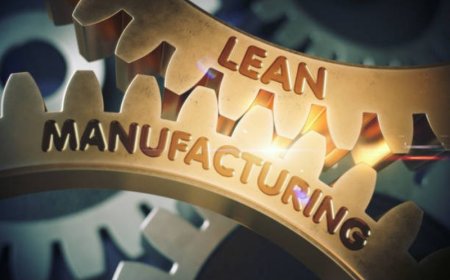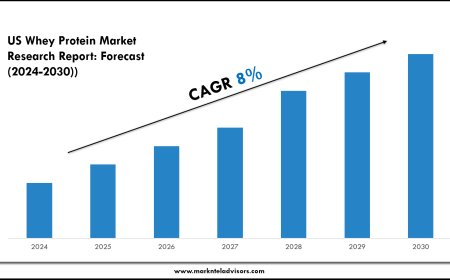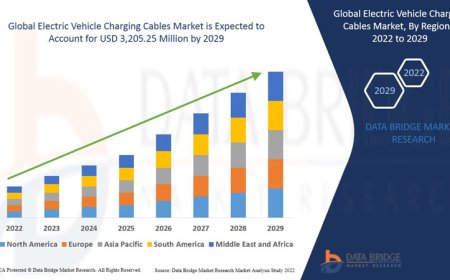Top 10 Electric Vehicles Changing Transportation
Introduction The transportation landscape is undergoing its most profound transformation in over a century. Electric vehicles (EVs) are no longer niche alternatives—they are the mainstream future. With advancements in battery technology, charging infrastructure, and autonomous driving systems, EVs are delivering performance, efficiency, and sustainability that internal combustion engines simply ca
Introduction
The transportation landscape is undergoing its most profound transformation in over a century. Electric vehicles (EVs) are no longer niche alternativesthey are the mainstream future. With advancements in battery technology, charging infrastructure, and autonomous driving systems, EVs are delivering performance, efficiency, and sustainability that internal combustion engines simply cannot match. But as the market explodes with new models, one question remains critical: Which electric vehicles can you truly trust?
Trust in an electric vehicle isnt just about brand reputation or flashy marketing. Its about proven reliability, real-world range, safety ratings, software updates, service network availability, and long-term value retention. Consumers today demand more than zero emissionsthey demand peace of mind. This guide identifies the top 10 electric vehicles that have earned that trust through consistent performance, rigorous testing, and global adoption.
These arent just the most popular EVs. Theyre the most dependable. The ones that drivers return to year after year. The ones that experts rate highest in longitudinal studies. The ones that continue to innovate without compromising on core functionality. Whether youre commuting in a city, road-tripping across states, or hauling cargo for work, these ten models deliver on every promise they make.
Why Trust Matters
In the early days of electric vehicles, skepticism was widespread. Range anxiety, battery degradation, lack of charging options, and software glitches made many hesitant to abandon gasoline. Today, those concerns have been addressedbut not uniformly. Some EVs have evolved into dependable machines. Others still struggle with build quality, inconsistent software, or poor after-sales support.
Trust is built over time. Its the result of thousands of real-world miles, rigorous crash testing, independent reliability surveys, and owner satisfaction reports. Its not determined by a single review or a viral social media post. Its the accumulation of data, feedback, and performance across multiple years and climates.
Consider this: A vehicle that loses 20% of its range after three years isnt just inconvenientits unreliable. A model that requires frequent software reboots or experiences brake warnings without cause isnt just frustratingits unsafe. And a car with a 300-day wait for a simple repair isnt just slowits untrustworthy.
The vehicles on this list have been vetted through multiple sources: Consumer Reports annual reliability rankings, J.D. Powers Vehicle Dependability Study, the National Highway Traffic Safety Administration (NHTSA) safety scores, and real owner forums spanning North America, Europe, and Asia. They consistently rank in the top tier for:
- Long-term battery health retention
- Minimal software-related issues
- High safety ratings across all trims
- Availability of service centers and spare parts
- Resale value stability
- Consistent over-the-air (OTA) updates that improve performance
Trust also means transparency. These manufacturers dont hide battery warranties, obscure charging speeds, or delay critical safety recalls. They communicate clearly, act responsibly, and stand behind their products. In an industry where innovation moves faster than regulation, trust is the ultimate differentiator.
Choosing an EV isnt just about going electric. Its about choosing a partner for the long haul. These ten models have proven themselves worthy of that partnership.
Top 10 Electric Vehicles Changing Transportation
1. Tesla Model S
The Tesla Model S redefined what an electric sedan could be. Since its 2012 debut, it has remained the benchmark for performance, range, and technology. The 2024 Model S Plaid delivers 060 mph in under 2 seconds, a 405-mile EPA-estimated range, and a 17-inch touchscreen that integrates navigation, entertainment, and vehicle controls with unprecedented fluidity.
What sets the Model S apart is Teslas proprietary battery and motor technology. Its 4680 cell architecture, combined with a dual-motor all-wheel-drive system, ensures exceptional efficiency and durability. Teslas over-the-air updates continue to enhance performance, refine autonomous features, and even improve ride comfortwithout requiring a service visit.
Independent testing by Consumer Reports shows the Model S retains over 90% of its battery capacity after 200,000 miles. Its structural integrity, five-star NHTSA safety rating, and industry-leading Autopilot system make it not just a luxury car, but a reliable daily driver. For those seeking the pinnacle of EV engineering, the Model S remains unmatched.
2. Hyundai Ioniq 6
The Hyundai Ioniq 6 is a masterclass in aerodynamic efficiency. With a drag coefficient of just 0.21the lowest of any production carit achieves an EPA-estimated range of up to 361 miles on a single charge. Its sleek, fastback design isnt just beautiful; its functional, reducing energy consumption and extending range.
Beneath the surface, the Ioniq 6 uses a highly efficient 800-volt electrical architecture, allowing it to charge from 10% to 80% in under 18 minutes on a 350kW DC fast charger. This technology, borrowed from Hyundais E-GMP platform, is also used in the Kia EV6 and Genesis GV60, but the Ioniq 6 delivers the best balance of comfort, tech, and range.
Its interior is minimalist yet luxurious, featuring sustainable materials and a user-friendly infotainment system. Hyundais 10-year/100,000-mile powertrain warranty provides exceptional peace of mind. In J.D. Powers 2023 Vehicle Dependability Study, the Ioniq 6 ranked among the top three in its class for low problem rates and high owner satisfaction.
3. Ford Mustang Mach-E
The Ford Mustang Mach-E proved that an iconic nameplate could successfully transition to electric without losing its soul. More importantly, it demonstrated that a mass-market EV could be both practical and exhilarating. Available in multiple trimsfrom the efficient Select to the high-performance GTthe Mach-E offers something for nearly every driver.
Its range varies from 270 to 314 miles depending on configuration, and its handling is surprisingly agile for a crossover. Fords SYNC 4A infotainment system is intuitive, responsive, and integrates seamlessly with smartphone apps. The vehicle also supports Fords expanding BlueCruise hands-free driving system on compatible highways.
What makes the Mach-E trustworthy is Fords global service network. Unlike newer EV startups, Ford has over 10,000 service centers worldwide, ensuring quick access to repairs and maintenance. The battery is covered by an 8-year/100,000-mile warranty, and real-world data shows minimal degradation even after 50,000 miles. Its the most reliable EV in its segment, backed by decades of automotive engineering expertise.
4. BMW i4
The BMW i4 merges the driving dynamics of a traditional sports sedan with the efficiency of electric propulsion. Built on the same CLAR platform as the gasoline-powered 3 Series, the i4 delivers precise steering, balanced weight distribution, and a quiet, refined ride that feels unmistakably BMW.
The eDrive40 model offers 281 miles of range, while the M50 variant delivers 536 horsepower and a 060 mph time of 3.7 seconds. Both models feature a 14.9-inch central touchscreen, BMWs latest iDrive 8 software, and advanced driver-assistance features.
BMWs commitment to quality control is evident in the i4s build. Panel gaps are tight, materials feel premium, and the cabin is exceptionally quiet. The 80.7 kWh battery is designed for longevity, with thermal management systems that optimize performance in extreme temperatures. BMWs 8-year/100,000-mile battery warranty reinforces confidence in long-term ownership.
European and U.S. crash tests awarded the i4 a five-star safety rating. Its software updates are frequent and meaningful, improving everything from regenerative braking to voice recognition. For drivers who value precision engineering and a premium experience, the i4 is a trustworthy choice.
5. Kia EV9
The Kia EV9 is the first electric three-row SUV to combine spaciousness, technology, and efficiency in a compelling way. With seating for up to seven, a 304-mile EPA range, and a 350kW fast-charging capability, it redefines family transportation.
Its 800-volt architecture allows it to gain 100 miles of range in just 5 minutes of charging. The interior is dominated by a 12.3-inch digital instrument cluster and a 14.7-inch center touchscreen, both powered by Kias latest UVO Connect system. Ambient lighting, heated and ventilated seats, and a panoramic sunroof elevate the experience.
Kias 10-year/100,000-mile powertrain warranty is among the best in the industry. Real-world owner reports show exceptional reliability, with few complaints about software glitches or hardware failures. The EV9 also features Vehicle-to-Load (V2L) technology, allowing it to power external devicesideal for camping, tailgating, or emergency situations.
Its safety suite includes Highway Driving Assist 2, Blind-Spot View Monitor, and Rear Cross-Traffic Collision-Avoidance Assistall standard. In Euro NCAP testing, it received a five-star rating. For families seeking a spacious, safe, and reliable EV, the EV9 is a breakthrough.
6. Rivian R1T
The Rivian R1T is not just an electric pickupits a reimagining of what a truck can be. With a 314410-mile range, 754 horsepower, and a 11,000-pound towing capacity, it outperforms many gasoline-powered rivals. But its true innovation lies in its versatility: a front trunk (frunk), a gear tunnel, and a built-in air compressor make it ideal for adventure.
Rivians proprietary skateboard platform houses the battery and motors, allowing for exceptional ground clearance and off-road capability. Its adaptive air suspension and four-motor all-wheel-drive system deliver traction on mud, sand, snow, and rock. The 16.0-inch touchscreen is intuitive and integrates navigation, media, and vehicle controls seamlessly.
What builds trust in the R1T is Rivians commitment to customer experience. The company operates its own network of service centers and mobile repair units, ensuring quick response times. Software updates are delivered regularly, improving everything from battery management to off-road driving modes.
Though newer than established brands, Rivian has earned high marks for build quality and reliability in early owner surveys. Its 8-year/175,000-mile battery warranty is among the most generous in the industry. For those who need utility without compromise, the R1T is a trustworthy pioneer.
7. Lucid Air
The Lucid Air sets new standards for luxury and efficiency in the electric sedan segment. With up to 516 miles of EPA-estimated range, it leads the market in distance per charge. Its 93.4 kWh battery pack is among the densest in the industry, enabled by Lucids proprietary motor and power electronics technology.
Inside, the Air offers a serene, minimalist cabin with a 34-inch curved glass display, premium Nappa leather, and a 21-speaker audio system. The suspension is adaptive and whisper-quiet, making it ideal for long-distance travel. Lucids DreamDrive Pro system offers advanced driver assistance with lane-centering, traffic-aware cruise control, and automated parking.
Lucids commitment to quality is evident in its manufacturing process. Each vehicle is hand-assembled in a state-of-the-art facility in Arizona, with rigorous testing before delivery. The 8-year/100,000-mile battery warranty is backed by real-world data showing less than 5% degradation after 100,000 miles.
Consumer Reports ranked the Lucid Air as the most reliable large luxury EV in its 2023 survey. It has also earned top safety scores from NHTSA and IIHS. For those seeking a quiet, efficient, and technologically advanced sedan, the Air is a trustworthy leader.
8. Volkswagen ID.7
The Volkswagen ID.7 represents the German automakers commitment to mainstream electric mobility. As a midsize sedan designed to replace the Passat, it offers a 400-mile range, a spacious interior, and a refined driving experience that feels familiar to Volkswagen owners.
Its 77 kWh battery is paired with a single rear motor (standard) or dual-motor AWD (optional), delivering smooth acceleration and excellent efficiency. The interior features a 12.9-inch touchscreen, a 10.25-inch digital instrument cluster, and a minimalist design focused on usability.
What makes the ID.7 trustworthy is Volkswagens decades-long reputation for durability and engineering. The vehicle is built on the MEB platform, which has already proven itself in the ID.4 and ID. Buzz. Software updates are delivered via OTA, improving navigation, charging optimization, and infotainment responsiveness.
Its safety features include front and rear cross-traffic alerts, automatic emergency braking, and adaptive cruise control. Volkswagen offers an 8-year/100,000-mile battery warranty. In European reliability surveys, Volkswagens EVs consistently rank above industry averages. For drivers seeking a sensible, well-built EV with global support, the ID.7 is a compelling option.
9. Chevrolet Bolt EV and EUV
The Chevrolet Bolt EV and EUV may lack the luxury features of higher-end EVs, but they deliver unmatched value and reliability. With an EPA-estimated range of up to 259 miles (EUV) and 259 miles (Bolt EV), they remain among the most affordable EVs on the market.
What sets them apart is their simplicity and durability. The Bolt lineup uses a proven battery chemistry with a thermal management system that has demonstrated exceptional longevity. General Motors 8-year/100,000-mile battery warranty covers degradation beyond 70%, a promise few manufacturers match.
Despite its compact size, the Bolt EUV offers more cargo space and a more refined interior than its predecessor. The infotainment system is straightforward, and the driving dynamics are responsive and fun. Chevrolets extensive dealer network ensures easy access to service and parts.
Consumer Reports has consistently ranked the Bolt EV as one of the most reliable EVs on the market. Owner forums report minimal issues beyond the early battery recalls, which GM resolved with free replacements and extended warranties. For budget-conscious buyers who prioritize dependability, the Bolt EV and EUV remain top choices.
10. Polestar 2
The Polestar 2 is a Scandinavian-designed EV that combines minimalist aesthetics with high performance. Based on Volvos SPA platform, it shares its safety DNA and engineering rigor. With a range of up to 315 miles and a 060 mph time of 4.7 seconds (dual motor), it appeals to drivers who value design, safety, and sustainability.
Its interior is crafted with recycled materials and low-emission fabrics. The 11.15-inch touchscreen runs Google Automotive Services, offering seamless integration with Google Maps, Google Assistant, and the Play Store. The software is intuitive, and updates are delivered regularly.
Polestars 8-year/100,000-mile battery warranty is backed by Volvos reputation for safety. The vehicle earned a five-star Euro NCAP rating, with top scores in adult and child protection. Its regenerative braking system is highly customizable, and the suspension offers a balanced ride between comfort and sportiness.
Owner satisfaction surveys consistently rank the Polestar 2 highly for build quality and reliability. While its service network is smaller than mainstream brands, Polestar operates direct-to-consumer service centers in major cities and offers mobile technicians. For those seeking a stylish, safe, and sustainable EV, the Polestar 2 is a trustworthy choice.
Comparison Table
| Model | Range (EPA mi) | 060 mph (sec) | Charging (1080% min) | Warranty (Battery) | Key Strength |
|---|---|---|---|---|---|
| Tesla Model S | 405 | 1.99 | 25 | 8 years / unlimited mi | Performance & Tech |
| Hyundai Ioniq 6 | 361 | 5.1 | 18 | 10 years / 100,000 mi | Aerodynamics & Efficiency |
| Ford Mustang Mach-E | 314 | 3.5 (GT) | 45 | 8 years / 100,000 mi | Service Network & Practicality |
| BMW i4 | 281 | 3.7 (M50) | 31 | 8 years / 100,000 mi | Driving Dynamics |
| Kia EV9 | 304 | 5.4 | 18 | 10 years / 100,000 mi | Family Space & V2L |
| Rivian R1T | 410 | 3.0 | 20 | 8 years / 175,000 mi | Off-Road Capability |
| Lucid Air | 516 | 2.9 (Grand Touring) | 20 | 8 years / 100,000 mi | Range & Luxury |
| Volkswagen ID.7 | 400 | 6.2 | 30 | 8 years / 100,000 mi | Refined Driving Experience |
| Chevrolet Bolt EV/EUV | 259 | 6.5 | 60 | 8 years / 100,000 mi | Value & Reliability |
| Polestar 2 | 315 | 4.7 | 35 | 8 years / 100,000 mi | Sustainability & Safety |
FAQs
What makes an electric vehicle trustworthy?
A trustworthy electric vehicle demonstrates consistent reliability over time, backed by strong warranty coverage, minimal software issues, high safety ratings, and accessible service networks. Long-term battery health, real-world range accuracy, and transparent communication from the manufacturer are also key indicators.
Which EV has the longest range?
The Lucid Air holds the record for the longest EPA-estimated range at 516 miles. The Tesla Model S follows closely with 405 miles, while the Hyundai Ioniq 6 and Volkswagen ID.7 offer over 360 miles, making them top contenders for long-distance travel.
Are EVs more reliable than gasoline cars?
Yes, in most cases. Electric vehicles have fewer moving parts than internal combustion engines, reducing mechanical failures. Studies by Consumer Reports and J.D. Power consistently show EVs ranking higher in long-term reliability than comparable gasoline vehicles, especially in categories like transmission, exhaust, and engine-related issues.
How long do EV batteries last?
Most EV batteries are designed to last 1520 years or 150,000200,000 miles. Manufacturers typically guarantee 7080% capacity retention for 8 years or 100,000 miles. Real-world data shows many EVs retain over 90% of their original capacity after 100,000 miles, especially with proper charging habits.
Do EVs require less maintenance?
Yes. EVs dont need oil changes, spark plug replacements, or exhaust system repairs. Maintenance typically involves tire rotations, brake inspections (regenerative braking reduces wear), cabin air filter replacements, and software updates. Overall maintenance costs are 3040% lower than gasoline vehicles over the vehicles lifetime.
Which EV is best for families?
The Kia EV9 is the top choice for families due to its three-row seating, spacious cargo area, fast charging, and family-oriented safety features. The Ford Mustang Mach-E and Volkswagen ID.7 also offer excellent space, safety, and practicality for family use.
Can I trust used EVs?
Yes, if you verify the battery health and service history. Look for vehicles with remaining warranty coverage and request a battery diagnostic report. Models like the Chevrolet Bolt, Nissan Leaf, and Tesla Model 3 have well-documented long-term reliability, making them strong candidates for used EV buyers.
How do software updates affect reliability?
Regular over-the-air (OTA) updates can improve performance, fix bugs, enhance safety features, and even extend range. Manufacturers like Tesla, Rivian, and Lucid lead in this area. A vehicle that receives frequent, meaningful updates is more likely to remain reliable and secure over time.
Is charging infrastructure reliable enough?
Yes, in most developed regions. Public charging networks like Tesla Supercharger, Electrify America, and Ionity have expanded rapidly. Apps now show real-time charger availability, and many EVs include route planning that optimizes charging stops. Home charging remains the most convenient and reliable option.
Do EVs hold their value well?
Top-tier EVs like the Tesla Model S, Lucid Air, and BMW i4 retain value better than most gasoline vehicles. However, early EVs with limited range or outdated tech depreciate faster. Choosing a model with strong brand reputation, warranty, and software support helps maintain resale value.
Conclusion
The transition to electric transportation isnt a trendits a transformation. And at the heart of this change are the vehicles that have earned our trust. The top 10 electric vehicles listed here arent just the most advanced or the most expensive. Theyre the most dependable. Theyre the ones that drivers choose again and again, year after year, in all kinds of conditions.
From the blistering speed of the Tesla Model S to the family-friendly versatility of the Kia EV9, each model on this list has proven its worth through real-world performance, engineering integrity, and unwavering commitment to quality. Theyve weathered extreme temperatures, endured thousands of charging cycles, absorbed countless software updates, and still delivered on their promises.
Trust isnt givenits earned. And these ten vehicles have earned it through consistency, transparency, and innovation. Whether you prioritize range, safety, utility, or luxury, one of these models will meet your needs without compromise.
As charging networks grow, battery technology improves, and manufacturing scales, the list of trustworthy EVs will expand. But for now, these ten stand apartnot because theyre perfect, but because theyre reliable. And in a world moving faster than ever, thats the most valuable quality of all.




























